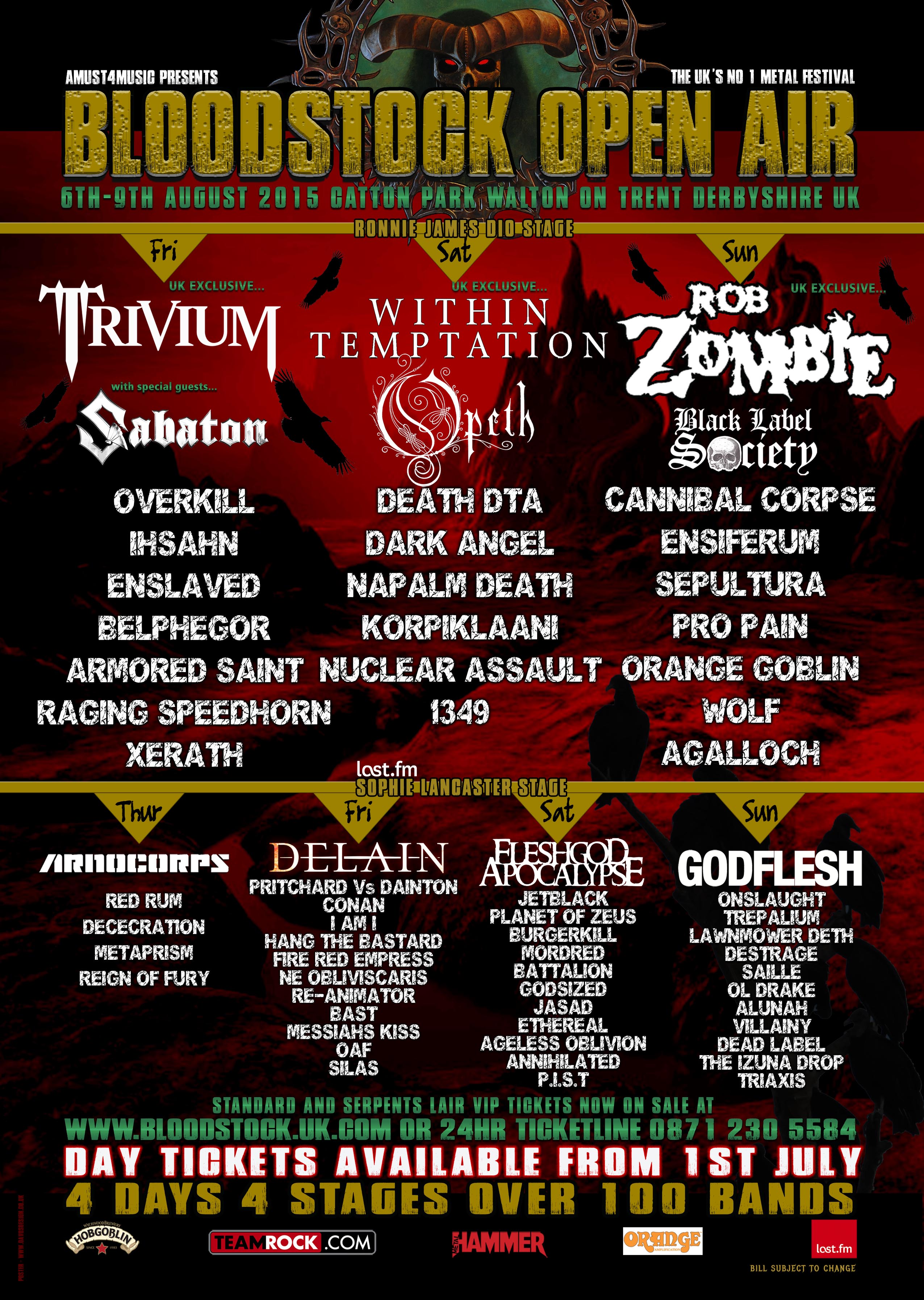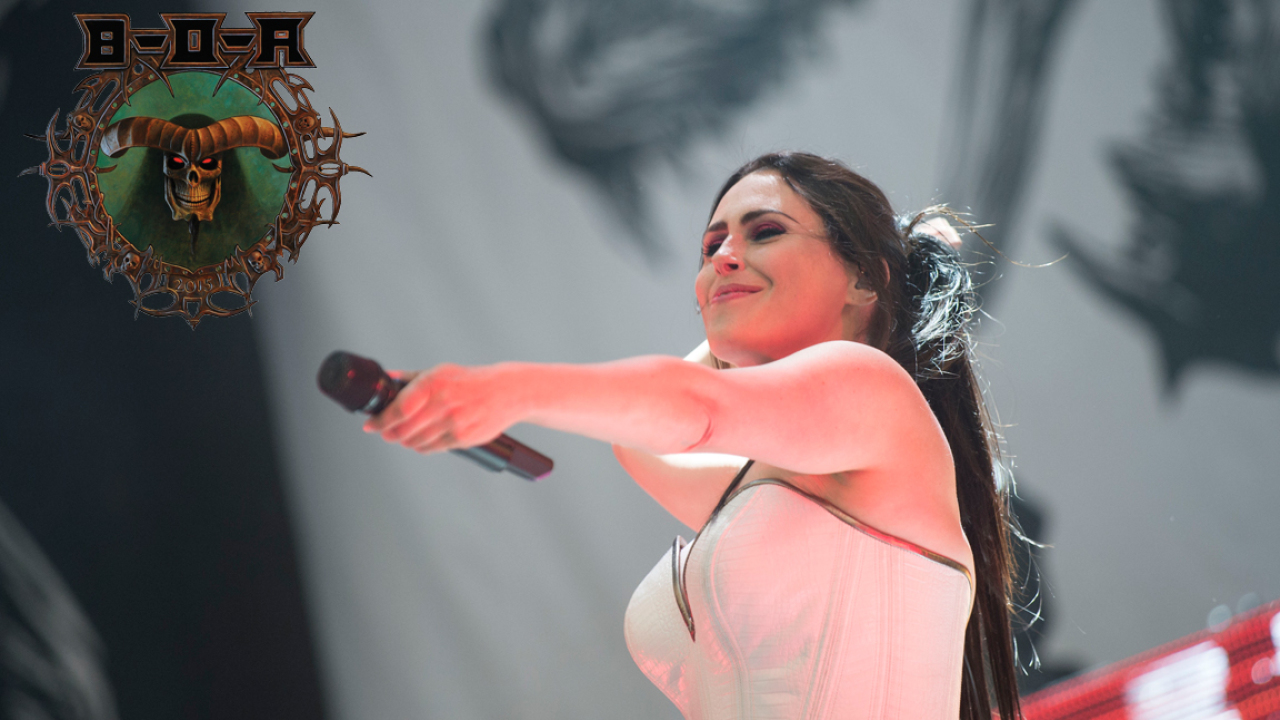In 2005, Within Temptation headlined Bloodstock. Only, it wasn’t the Bloodstock we know now. That was the first year that the “Open Air” was ever used in the festival’s title – only there was still an indoor version, one of only two years this was the case. In 2015, ten years on, Within Temptation return to headline Bloodstock again, with both the band and the festival in very different states. Bloodstock is now open air only, and vastly bigger than before, with a more varied and consistently strong bill. Meanwhile Within Temptation got fucking massive and now play Wembley Arena when they come here. We asked Sharon den Adel for her memories, and what she expects to have changed this time around.
What are your memories of playing Bloodstock the last time you were here? “It was very compact! It was one big building. I remember that the meet and greet was really special. It was one of the first festivals we did in England, if not the first one. I remember people were singing along, it was a very memorable show because we had a lot of feedback from the audience. It was one of those shows you remember because it had a good vibe, one of the first that we did in the UK.”
What are you expecting to be different this time around? “I have no clue, because I only have those first memories when it was this really compact, it felt like everybody knew each other. It was like playing for your own crowd, more or less. So I don’t know what to expect. But I know we had a good feeling with the festival at the time and we had a good crowd – very connected [with us], very outgoing, very interactive – and now it’s outdoors, so it’s going to be totally different. It’s exciting, it’s almost like the first time again. It’s a different location, maybe the vibe has changed. I’m just going to go and enjoy the moment.”
What will you be able to do with the stage show this time that you couldn’t before? “The last time we played, we were just starting up in England and we couldn’t bring that much. But we’re going to bring everything we have to England now, because we’re in a different stage, we have the possibility of bringing more. So we’re going to explode everything – it’s going to be FIRE FIRE!”
What do you think it says about metal in Britain that, despite how much bigger you’ve got, Bloodstock has grown big enough to have you back? “If you look at the line-up, it’s a very varied set of bands playing. There’s female-fronted, male-fronted – everything metal is played there! The varieties in metal are all welcome at this festival. There’s very melodic bands, very heavy bands – the crowd are very open minded to all genres within metal, and that’s a very positive thing. There’s so many genres within metal, and so many flavours, and that’s very positive. And I think that’s also maybe why the festival grew so fast, because for everyone who likes heavy music, their answer is Bloodstock.”
Do you think there is a limit to how big a festival can get and maintain that feeling that everyone knows each other? “I think it’s very difficult to maintain that feeling, but if they have succeeded at that, it’s probably one of the reasons for their success. If you have that feeling that, if you like metal music, this is the place to be, and if everyone’s really relaxed despite it being a heavy metal festival, that’s the best that you can get. I think that’s probably one of the key reasons why they’ve become so big. Sometimes things grow out of hand; if a festival grows too fast, you can lose that feeling of intimacy. If they can maintain that, that’s probably one of the key reasons why they’re successful.”
How have festivals changed? “I see more specialised festivals coming up. It’s more dance festivals or more metal festivals. Those festivals where you have a combination of everything are becoming rare. Bloodstock is more the way most festivals are today; everything is about metal and heavy bands, and you have more rock [festivals] like Download, but in other places in Europe, there were more festivals combining everything, and now it’s becoming more specialised.”
You’ve played on some very varied festivals. How have the less specialist metal crowds received you? “We’ve always felt like the strange duck (that’s a Dutch expression!) because at the metal festivals, we are very melodic amongst those bands, so we’re strange in that direction – most heavy bands are heavier and more riff orientated. Then at mainstream festivals, we’re probably the heaviest band playing and people find it strange for that reason. So we’re always different from what’s mainly playing on the festival – which I like, because it makes you stand out, because you’re different to most of what’s playing.”

